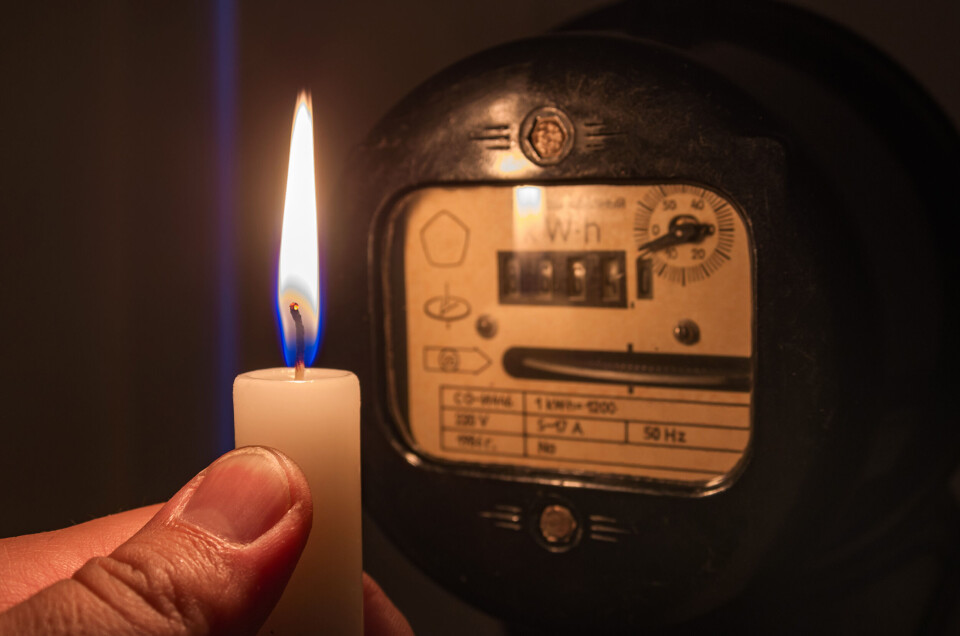-
La Voie Bleue: European Cycle Route of the Year is in France
700km bike path linking Luxembourg and Lyon has been crowned winner of the 2026 title
-
MAP: See how your location in France affects online food shop prices
New analysis shows how your shop compares on average
-
Further sightings of processionary caterpillars in France prompt action from local authorities
Caterpillars have arrived early after mild winter
Winter power cuts: What risk in France and why an app can help
We examine how households could be affected by electricity cuts and look at how to receive advance warning of disruptions in your area

France is at risk of electricity shortages this winter due to a combination of factors, including the fact that over half of the country’s nuclear reactors are currently offline.
Twelve of the country’s 56 reactors have been offline for several years due to corrosion issues, while others are currently undergoing maintenance.
France gets 70% of its electricity from nuclear power.
President Emmanuel Macron warned in a speech on July 14 this year of the need to reduce energy consumption. The government is working on new energy saving measures that it is calling a plan de sobriété.
The prime minister, Élisabeth Borne, has said that households will not be hit by gas cuts – another issue caused mostly by tensions with major supplier Russia – but the same is not guaranteed for electricity.
Read more: Gas cuts: how French firms and homes will or will not be affected
A 1990 law in France states that electricity can be cut in households “when it appears that the power supply is likely to be compromised”.
Any cuts would not impact vital services such as hospitals, road traffic signals, security infrastructures, etc.
And power to households is to be cut, it will likely be a last resort.
Read more: Can I change my French electricity supplier for a cheaper alternative?
Large electricity consumers targeted first
If electricity demand is too high this winter, the government will first turn to large businesses of industrial size.
Many industrial companies in France have for years had a system in place whereby when there is a peak in electricity demand, they agree to shut down their production for a few minutes or hours and in exchange receive remuneration.
France’s Energy Minister Agnès Pannier-Runacher has said she wants to bring back this type of offer for households and small businesses too.
The government is calling these proposed deals ‘tariff reduction formulas’ (formules d’effacement tarifaire).
EDF used to offer a similar scheme to customers under the name ‘Tempo’.
You can read more about this in our article here: France to offer cheap electricity to those who cut usage during peaks
5% decrease before any cuts
If demand is still too high then the Réseau de Transport d'Électricité (RTE), the electricity transmission system operator of France, will reduce the voltage of the entire French electricity network by 5%.
The impact will be almost imperceptible for households. For example, hobs will heat up a little less or light bulbs will be slightly less bright. The measure will save the equivalent of the electrical output of several nuclear reactors.
If demand is still too high, then RTE can put out a call for people to reduce their electricity consumption at peak times, meaning the mornings and evenings.
This would mean asking people to not run their dishwashers or washing machines or other less urgent electrical appliances at peak times.
Last resort: localised cuts of up to two hours
If the winter is particularly cold then RTE could be forced into cutting households’ electricity in targeted areas for a period of no more than two hours.
RTE states that if the temperature drops by one degree celsius at winter time, electricity consumption increases by 2,400MW, the equivalent to the normal consumption of Paris.
If the worst comes to the worst, RTE could cut households' electricity in certain areas to stabilise the grid. This could be in cities or neighbourhoods of cities. If the cuts need to last longer than two hours then the next city or neighbourhood would have its electricity cut for at most two hours.
Again, vital services and buildings will not be affected. People who are receiving medical treatment at home could be affected by the cuts but they will be warned in advance.
The idea of these measures is to avoid wholescale, unexpected blackouts caused by the demand for electricity being too high.
A phone app and website to track electricity consumption
RTE has developed a phone application called eCO2mix that allows users to see how France’s electricity grid is coping. It shows electricity demand over the whole country or per city or region. It also provides information on how much electricity normal household appliances use.
RTE is also currently updating its website Ecowatt that offers similar information. It also allows you to sign up to receive advance warning in case electricity in your area is going to be cut.
Related articles
Bills skyrocket for customers of alternative French energy supplier
France extends energy price cap measure to the end of 2022
EDF nationalisation is end of bumpy ride for French investors
























